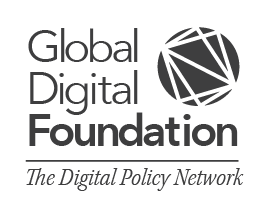
Trust frameworks for the AI value chain: Essential for transparency and regulatory conformity
Recently, value chain accountability has emerged as a key challenge for AI governance. Transparency of information is key to enabling accountability and building trust. Article 13 of the EU AI Act provides the requirement of transparency and provision of information for high-risk AI systems. However, we have yet to operationalise the process for information sharing through the value chain.
At this roundtable, we will hear from those at the forefront of AI regulation and standards in Europe, together with wider perspectives on the need for standardisation of information sharing between those in the AI value chain to support both transparency and regulatory conformity.

Trust frameworks for the AI value chain: Essential for transparency and AI assurance
Value chain accountability is a key challenge for AI governance. Transparency of information is key to enabling accountability and building trust. Article 13 of the EU AI Act provides the requirement of transparency and provision of information for high-risk AI systems. However, we have yet to operationalise the process for information sharing through the value chain.
At this event we will hear from representatives of both UK government and the UK standards body, BSI, together with leading experts in the field of AI governance.

Is AI really an existential threat?
The so-called ‘godfathers’ of AI, Yoshua Bengio, Geoffrey Hinton, and Yann LeCun are deeply divided as to whether AI is a major threat to humanity, or conversely, whether it’s an enabling technology to transform society for the better. We have two leading experts, Dr Bertie Müller, Chair of AISB, and Calum Chace, author of Surviving AI, to discuss the likelihood of these possible AI outcomes.
We then consider whether these developments have changed policy makers’ thinking or approach to AI regulation. Has the focus on foundation models and the possibility of some kind of AGI shifted the focus away from the real AI being deployed now?
Full video of the event is now available. Click View Event below.


Toolsets for Operationalisation of AI Assurance: Copenhagen
This event took place at the offices of 2021.AI in Copenhagen. We had some great speakers and enjoyed a lively discussion on the benefits of frameworks and technical tools to operationalise AI assurance. See event details for full video.

Assured AI and Data Ecosystems: Innovation, Standards, and Cybersecurity
As regulatory approaches to AI and its applications firm up, attention is turning to operational challenges. How do we ensure AI value chains function smoothly? How do we build confidence in cybersecurity? How do we get the right standards while encouraging innovation? See event details for full report.

AI REGULATION TRENDS 2022: THE IMPACTS FOR INDUSTRY
Join us at ‘AI Governance and Assurance Global Trends 2022’ in Milan where Catriona Gray will present our recent report - a current snapshot of the most important global trends in AI policy and governance.
Find out what these trends mean in practice. Hear from industrialists how current and planned regulation impacts their industries, and join the discussion on operationalising AI governance and assurance.

AI ASSURANCE AND INDUSTRY 4.0 : BERLIN
We were pleased to host AI Assurance and Industry 4.0, a roundtable discussion at which experts from government, industry, and academia offered insights on measures to increase trust, innovation, and competitiveness. See event details for a synopsis and full video.

AI ASSURANCE : THE STATE OF PLAY
The AI Assurance Club kicked off last month in London with AI Assurance: the State of Play, at which speakers from industry and government discussed the current state of play in AI. Key themes included the importance of a coherent standards landscape, the need to avoid the pitfalls of GDPR, and the value of a global perspective on AI governance.

FOUNDATION FORUM 2021: AI SECURITY & PRIVACY
One impact of the Covid-19 pandemic in Europe has been a step change in digital transformation affecting all sectors. Industries from pharmaceuticals to manufacturing, and services have begun to build an enabling foundation for the digital society. The European Commission has prioritized legislation to regulate emerging technologies, including Artificial Intelligence through the Artificial Intelligence Act, the upcoming Data Act, as well as through facilitating the creation of European data spaces in specific sectors (Health, Transportation).
Chaired by Paul MacDonnell, the Foundation Forum 2021 will feature three workshops moderated by CEPS, Eclipse Foundation and ETSI. These will focus on the role of AI regulation, technology, cybersecurity and privacy standards in enabling AI innovation and data governance in Europe. With a diverse group of stakeholders across different sectors, attendees will benefit from a wide range of discussions through a convention of key stakeholders. If you wish to attend then please contact Esther Westerweele at: ewesterweele@lefmarketing.com

BRUSSELS ROUNDTABLE: 5. WHO WILL BEAR THE BURDEN OF DIGITAL SERVICES TAXES?
Though the European Commission has suspended its proposals for an EU-wide Digital Services Tax (DST), a number of countries both in and outside the EU—including France, Hungary, India, Italy, Chile, Spain, and the United Kingdom—are unilaterally pressing ahead with DSTs as an ‘interim’ measure, pending proposed agreement by the OECD of a future special tax framework for digital businesses.
Are DSTs a justified response to a global economy that is becoming more digitised? What will be the impact of DSTs? On platform businesses? Consumers? Business formation? The economy?
Join us for Who Will Bear the Burden of Digital Services Taxes?, in Brussels, 10th July next.
Places at this event are limited. If you would like to attend then please contact: Paul MacDonnell.
Brussels Roundtable: 4: DO WE NEED A DIGITAL TURNOVER TAX?
In March the European Commission announced a proposal for a “Digital Services Tax” (DST) to be levied on the turnover of “digital” businesses. Governments would impose a DST at a rate of 3 per cent on revenues from “digital services” on companies with revenue of at least €50 million in the EU and €750 million worldwide. Inspired by the Commission’s proposals, a number of countries around the world are proposing similar taxes on digital businesses whose operating models, they say, threaten their tax base and place bricks and mortar businesses at an unfair disadvantage. The UK has announced that it intends to implement a 2 per cent turnover tax on U.S. tech giants that it says will raise $1.9 billion. Similar proposals are now emerging from countries in the Asia-Pacific, including India and South Korea, and from countries in Central and South America.
Are digital taxes the right response to the particular business models of businesses that make use of digital platform? In an economy that is becoming more digital are digital businesses all that different?
Places at this event are limited. If you would like to attend then please contact: Paul MacDonnell

Brussels Rountables: 3. WILL DISTRIBUTED LEDGER TECHNOLOGIES REMAKE THE WORLD?
Distributed ledger (DLT), or Blockchain technologies, could replace a 4,000-year old system of recording contracts and transactions that relies on legal authorities to both register and enforce agreements. Distributed databases that can indelibly record transactions, including the transfer of ownership of all kinds of property, without any need for a central record or authority are now possible. The economic and political implications are significant.
DLT promises to lower the cost of creating secure contracts, of establishing registers of ownership, and of transmission of payments. Whether establishing land ownership in countries with poor legal systems or reducing the need for financial institutions to hold regulatory capital against non-payment of debts, DLT could significantly accelerate
economic productivity. However, the early adoption of blockchain technology as the basis for digital currencies, notably Bitcoin, has led to security breaches and wild
financial speculation that have dented confidence the potential benefits of DLT.
Are digital currencies part of the future of DLT or has the news and hype about Bitcoin just been a distraction from the real innovative potential of the underlying technology? What are the privacy and security risks of DLT?
Places at this event are limited. If you would like to attend then please contact: Paul MacDonnell
